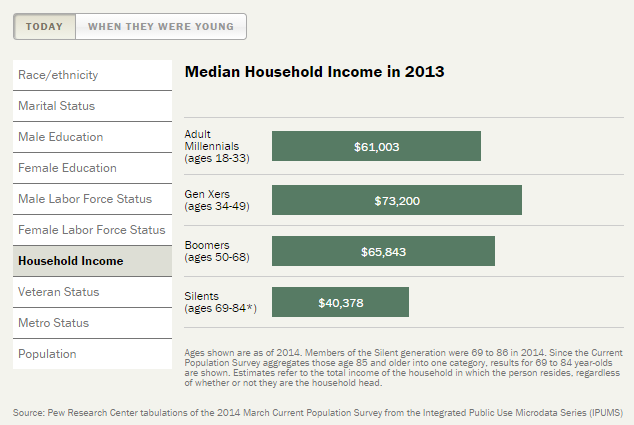The Nonprofit Tech for Good website has gathered up some research on Generation X:
Steve's Blog
From the closing plenary of the Skoll World Forum, Darren Walker, president of the Ford Foundation, spoke about The Art of Change, a new initiative that will examine the roles art and culture play in illuminating and addressing urgent issues of equity, opportunity, and justice:
Featured in the current Reader, an article by Jennifer C. Lena and Erin F. Johnston examines cultural engagement with global Muslim communities.
Twenty-six performing arts institutions from across the U.S. have been selected to take part in The Wallace Foundation’s Building Audiences for Sustainability effort a new, six-year, $52-million initiative aimed at developing practical insights into how arts organizations can successfully expand their audiences, the foundation has announced.
From Seth Lepore, posting to HowlRound:
Featured in the current Reader, an article by Terence E. McDonnell and Steven J. Tepper examines the use of metaphor to defend cultural organizations under the threat of closing.
From Malcolm Gay at The Boston Globe:
The Ford Foundation has announced a new effort centered on the roles art and culture play in illuminating and addressing urgent issues of equity, opportunity, and justice in the U.S. and around the globe. The yearlong exploration, The Art of Change, which builds on the foundation’s decades-long interest in advancing freedom of expression, reaffirms the central importance of creativity and cultural expression to healthy societies at a time when they are increasingly under threat.
From Peter Dreier, writing for Nonprofit Quarterly:
Michael Kaiser, from Huffington Post:



